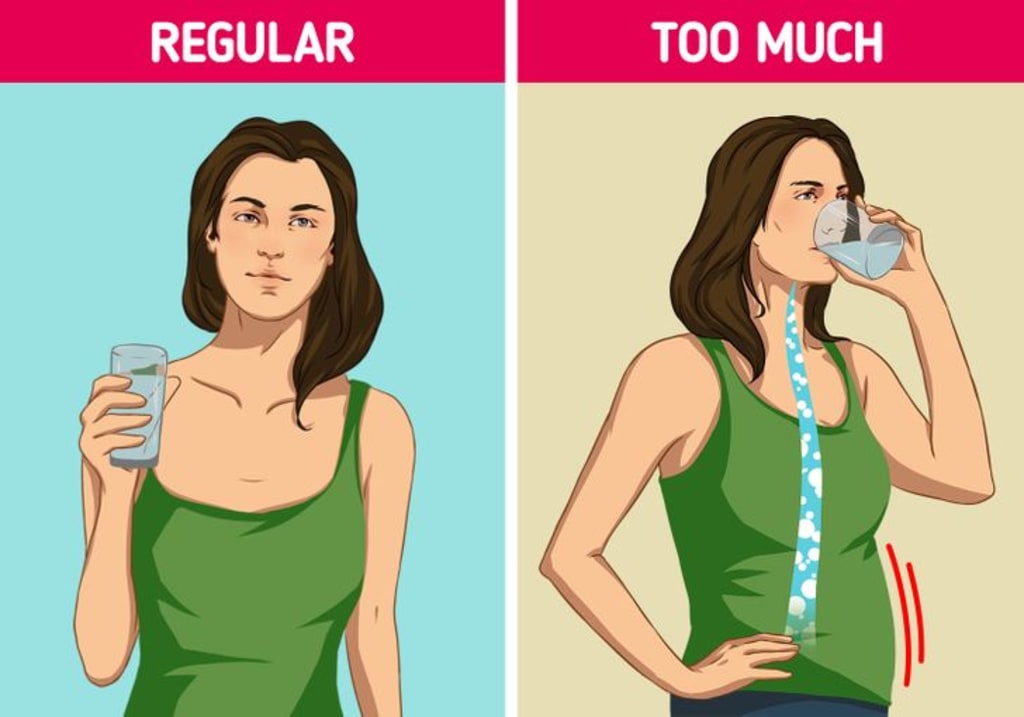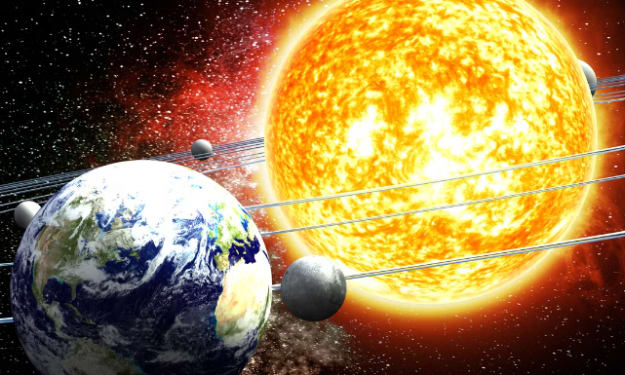What happens when you drink too much water?
All you need to know about the effects of drinking too much water!

When the word "poison" comes to mind, you might envision substances like arsenic or cyanide. However, water, the elixir of life, can become perilous under specific circumstances. In this article, we'll delve into the unexpected dangers of excessive water consumption, shedding light on a condition known as water intoxication.
The Role of Kidneys:
Our kidneys play a vital role in maintaining the delicate balance of fluids in our bodies. They filter out excess waste and water from the bloodstream, ensuring that we remain properly hydrated and free from harm. On average, kidneys can process around 800 to 1,000 milliliters of water per hour. This capacity keeps our internal environment stable. However, when this equilibrium is disrupted, trouble can ensue.
The Perils of Overhydration:
If you were to consume water at a rate exceeding your kidneys' processing ability, it would lead to a surplus of water in your cells. Normally, cells are enveloped by a meticulously balanced solution of sodium and water, which flows in and out through minuscule openings in the cellular membrane. This dynamic equilibrium maintains a consistent sodium concentration inside and outside the cell.
Dilution and Cell Swelling:
Excessive water consumption disrupts this balance. The sodium solution becomes diluted, losing its essential saltiness. Consequently, some of the excess water rushes into the cell in an attempt to restore equilibrium. This influx of water causes the cell to swell, a condition known as water intoxication—a significant health concern.
Variable Tolerance:
While many cells can tolerate some degree of swelling, those in the brain face unique challenges. Unlike soft, flexible tissues such as fat and muscle, the brain is encased in an unyielding skull. As the brain swells, pressure within the skull mounts. Initially, this may manifest as headaches, confusion, or drowsiness, but as the pressure escalates, the risk of severe consequences like brain damage, coma, and even death becomes alarmingly real.
Tragic Incidents and Vulnerable Populations:
Tragic incidents underscore the gravity of water intoxication. Consider the case of a 64-year-old woman who lost her life after consuming an excessive quantity of water—between 30 to 40 glasses in a single evening. Similarly, a group of US Army trainees experienced vomiting and seizures after consuming over two liters of water per hour following intense training.
Marathon Runners and Water Intoxication:
Marathon runners, in particular, need to exercise caution. A study has revealed that one in six marathon runners develops at least mild water intoxication. The rigorous demands of the race, including stress on the kidneys, hinder efficient water excretion, allowing water to accumulate in the bloodstream.
Beyond Water: Potomania and Other Risks:
It's worth noting that the risk of water intoxication extends beyond water alone. Excessive alcohol consumption, particularly in the form of beer, can lead to a similar condition known as potomania.
Preventing Water Intoxication:
Thankfully, severe water intoxication is relatively rare and is more likely to affect individuals with preexisting kidney issues, as their ability to process water is compromised. For the average healthy adult, consuming around three to four liters of water per day, obtained from various sources, including food and other beverages, is generally sufficient. The key to staying safe is to drink when your body signals thirst and to stop when you've had enough.
Conclusion: Balance is Key:
In closing, while water is undoubtedly essential for life, it's crucial to recognize that even the most fundamental of substances can pose risks when consumed excessively. Understanding the delicate equilibrium that governs our bodies and heeding the signals they provide can help us maintain our well-being while enjoying the benefits of adequate hydration.





Comments
There are no comments for this story
Be the first to respond and start the conversation.